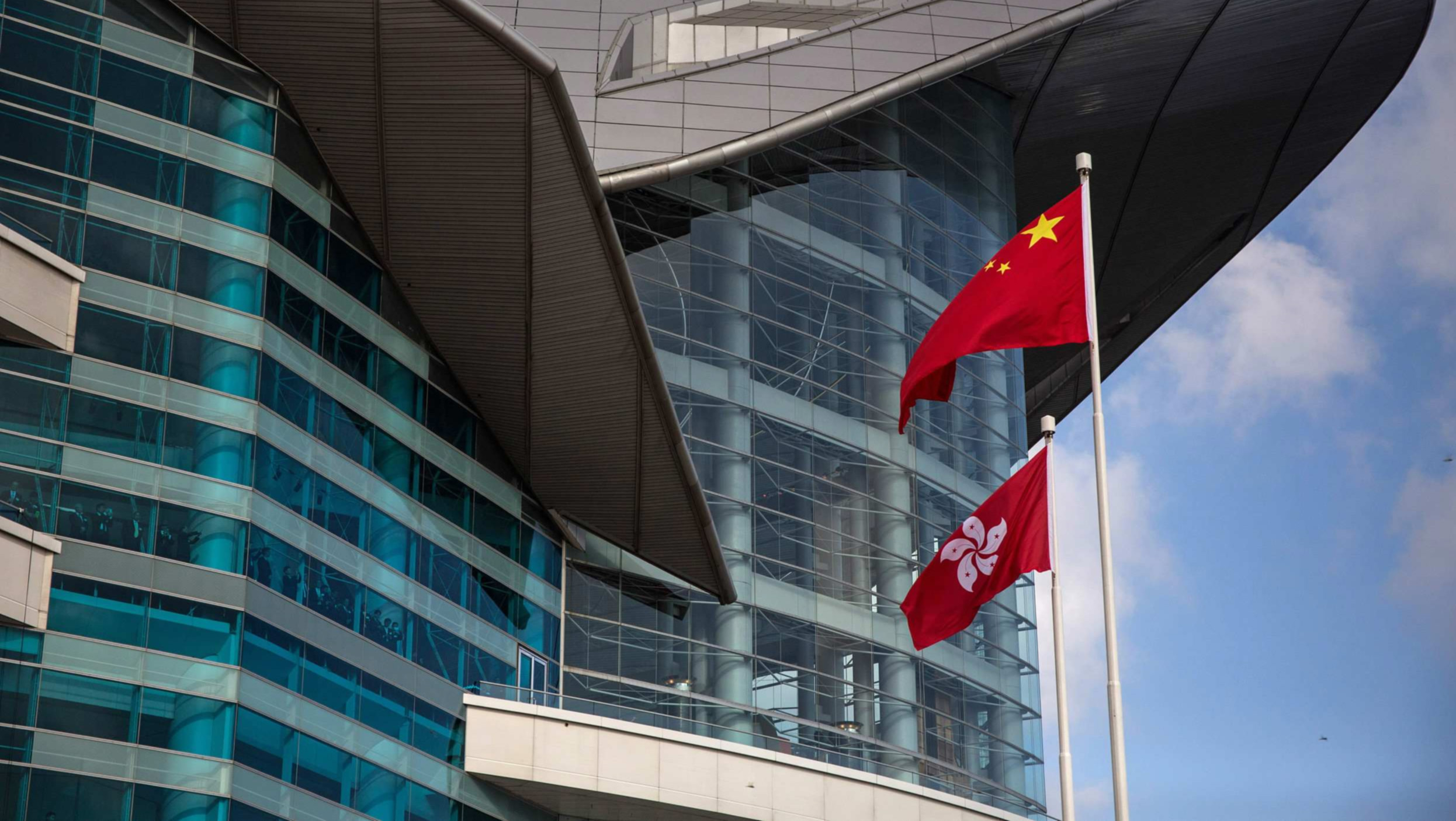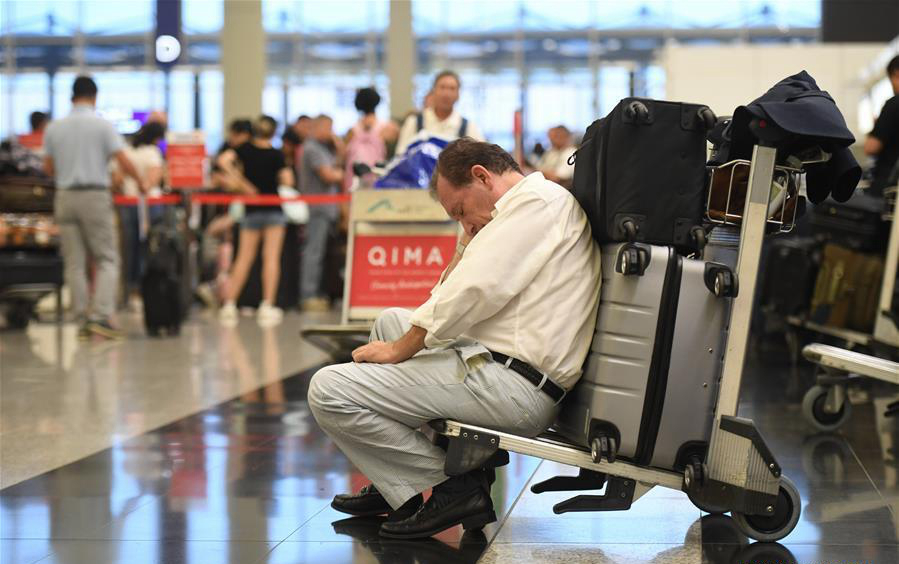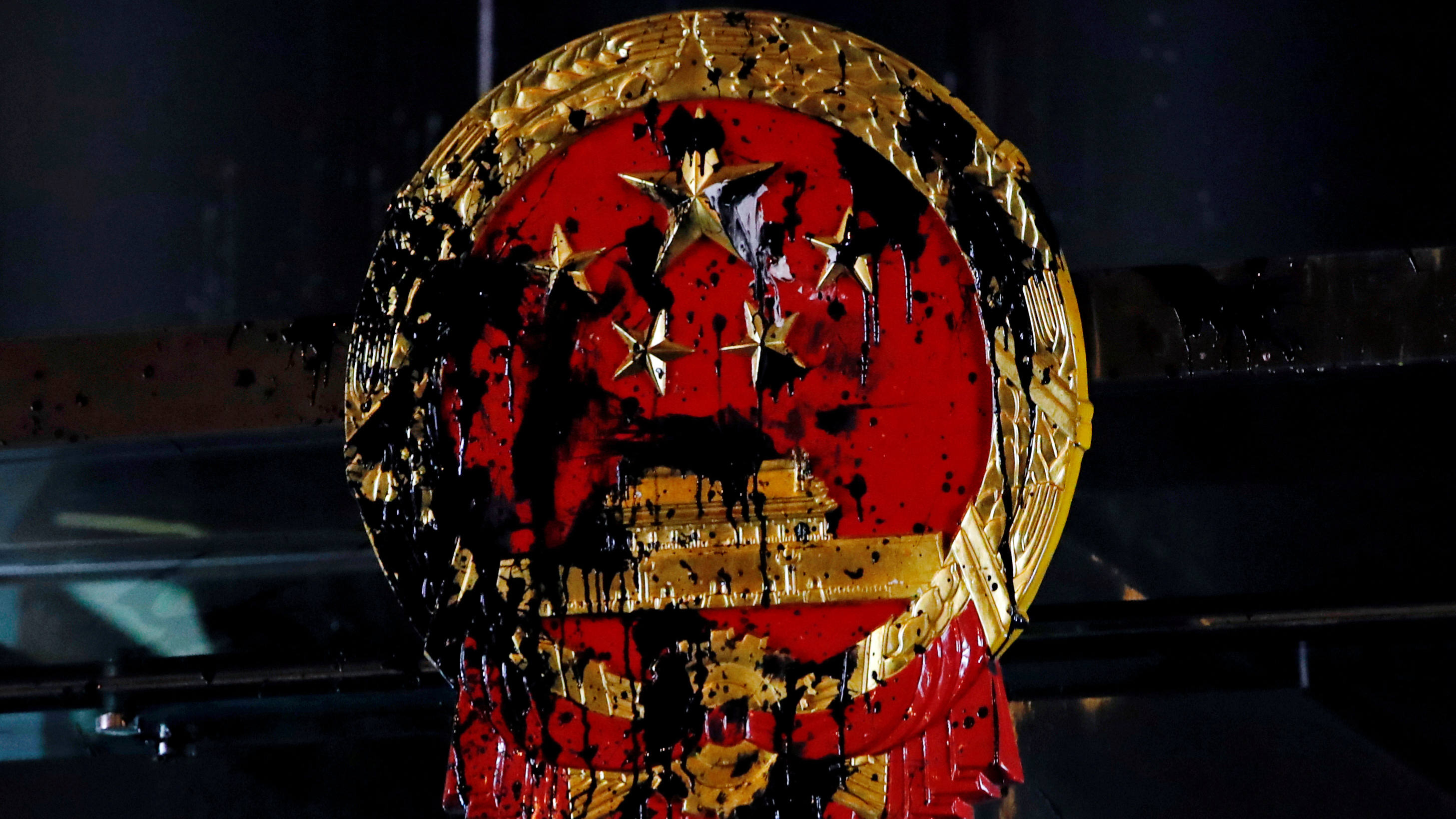

Editor's note: Liu Zhaojia is the vice president of Chinese Association of Hong Kong & Macao Studies and emeritus professor of sociology at the Chinese University of Hong Kong. This article is translated from an opinion piece originally published in Chinese in the People’s Daily. It reflects the author’s opinion, and not necessarily the views of CGTN.
Hong Kong is now facing the most challenging situation since its return to China. When and how the unlawful acts of violence will end remain unknown. In a turbulent moment like this, the comments regarding Hong Kong affairs made by the late Chinese leader Deng Xiaoping decades ago seem to have become more relevant than ever.
In several of his speeches in the 1980s, Deng pointed out that there was no other way except the "One Country, Two Systems" model to maintain the long-term stability and prosperity in Hong Kong. Fully aware of the complexity of Hong Kong politics and the existence of external anti-China forces, Deng also noted that it was still possible for them to cause turmoil in Hong Kong.
Giving a completely free rein to Hong Kong was unrealistic, he warned. While it was true that the central government would not and need not interfere with the way Hong Kong is run, in situations where national security and Hong Kong's fundamental interests were in jeopardy, the central government should not stand by in silence. Intervention would be warranted, he said, if anti-China forces purposely instigated riots in the garb of democracy. This was why policies and rules were included in both the "One Country, Two Systems" blueprint and Hong Kong Basic Law to allow the central government to intervene when needed.
The ongoing violence in Hong Kong started from the anti-fugitive bill protests that have stoked political panic and anti-government sentiment in society. However, after the Hong Kong authority declared the bill "dead" and sincerely apologized to the public, violence escalated rather than died down. Radical and reactionary protests, supported by foreign forces, threw out more political demands. Their aim is clear: Dismantling the "One Country, Two Systems" model, gaining full autonomy and making the city a pawn or bargaining chip for the U.S. and its Western allies to contain China's rise.
To secure victory, both internal and external anti-China forces in Hong Kong have carried out political mobilization to an extent never seen before. Igniting public dissatisfaction towards deep-going social and political issues, they have rallied people from different social sectors and staged protests to exert mounting pressure on the authorities.

Tourists were stranded due to chaos caused by protesters at Hong Kong International Airport in Hong Kong, China, August 13, 2019. /VCG Photo
They have also been vehemently attacking Beijing and Hong Kong authorities through foreign media and encouraging protests in Western countries in an attempt to engage more foreign forces. Escalating violence in the past two months has severely disrupted the city's economic and social order, threatened the legal system and undermined core values such as freedom, human rights, rule of law, inclusiveness, etc. that have long been held dear by the Hong Kong people.
According to my observation, the number of radical protesters involved in violent acts is rather small. On the face of it, their acts seem to be leaderless, disorganized, poorly planned and under-resourced. However, one would find it hard to believe that they could engage in systematic criminal activities for such a long time without manipulation, training and instruction from external forces. They believe only a violent approach can achieve their goals.
First, they attempt to whip up worries and panic in society, hoping that people, with a sense of insecurity, would pressurize Beijing to promise direct elections to tip the political balance in their favor.
Second, they hope to lure the police force into using excessive force to crack down on protesters to incur condemnation from the international society, and stir up conflicts between the police and the public, and further divide the city.
Third, if the Hong Kong authorities and the police fail to effectively put a stop to the ongoing violence, it will deal a heavy blow to their authority and ability to rule. This would further fuel the anti-government sentiment and hostility towards the police, thus enabling foreign forces to gain more leverage and power over the Hong Kong authorities.
Fourth, continuous acts of violence will inevitably weaken the city's economic dynamism and competitiveness, leading to depreciation of assets and drastic slashing of workforce. This would result in the Hong Kong authorities being overwhelmed by criticism and complaints, creating opportunities for reactionary forces to expand their political influence.

Violent protesters stain the Chinese national emblem at the Liaison Office of the Central People's Government in the HKSAR, July 21, 2019. /Reuters Photo
Now, the top priority for Hong Kong is to stop violence and chaos as soon as possible, and then to restore its political stability and rebuild a positive environment that is conducive to economic development and improvement of people's livelihood. When the turmoil ends, people in Hong Kong are able to be rational and pragmatic again, while the central government and Hong Kong can continue to work on advancing the economic and social development in a peaceful environment.
In stopping violence and chaos, it is self-evident that the Hong Kong Police Force plays an important role. They are the mainstay in safeguarding "One Country, Two Systems" and maintaining law and order in Hong Kong. In the past two months, the Hong Kong police has been faithfully and diligently observing their duties, though being subjected to unjustified insulting and bullying.
The rioters in Hong Kong, spreading false information against the police and inciting anti-police sentiment in public, have used all means to defame the police and to disintegrate their morale. Yet, the Hong Kong police still receive the greatest support from Hong Kong residents, all patriotic Chinese and the central government.
Looking ahead, the turmoil in Hong Kong will be successfully stopped. Those anti-China forces, both inside and outside Hong Kong, will learn that any attempt to make the central government and Hong Kong give in is doomed to failure. Meanwhile, Hong Kong should take active measures to protect the implementation of "One Country, Two Systems," educating the people in Hong Kong, especially those young people, to understand both the "One Country, Two Systems" model, and to realize their responsibilities for the country and the city, so that the model can continue to serve well in Hong Kong.
(If you want to contribute and have specific expertise, please contact us at opinions@cgtn.com)

Copyright © 2018 CGTN. Beijing ICP prepared NO.16065310-3
Copyright © 2018 CGTN. Beijing ICP prepared NO.16065310-3